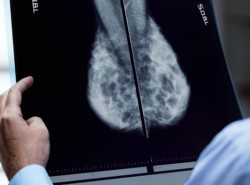
Uncovering new treatments for metastatic triple negative breast cancer
Published: 10/7/19 11:23 PM

Alexander Swarbrick
Triple negative breast cancers are an aggressive subtype that lacks expression of the Estrogen and HER-2 receptors. This makes treatment of triple negative breast cancer problematic as common hormone and drug therapies tamoxifen and Herceptin target Estrogen and HER-2 receptors respectively, and therefore are ineffective against triple negative breast cancers. Chemotherapy remains the only approved systemic therapy for this subtype of breast cancer.
However, the use of chemotherapy is far from optimal for several reasons. Firstly, some cancers are naturally resistant to chemotherapy or develop resistance to it over time and recur as hard-to-treat disease which has spread (metastasised). Secondly, these chemotherapies have many side effects on the patient. Ideally chemotherapy will only be given to those likely to benefit from it, while sparing others from ineffective treatment.
NBCF-funded researcher Associate Professor Alexander Swarbrick is using cutting-edge technologies to study the genetics of cancer cells of women with triple negative breast cancer. He will use ‘single cell genomics’ to analyse samples collected during chemotherapy as well as metastatic disease and mouse models. This exciting research may not only uncover the fundamental mechanisms controlling the response to chemotherapy, but may also provide remarkable new opportunities in our search for predictive tests and new drug targets for chemo-resistant triple negative breast cancer.
Associate Professor Swarbrick has assembled a multi-disciplinary team including young clinicians, scientists and established researchers to tackle this important problem from a new angle. This project offers remarkable new opportunities in the search for predictive tests and new drug targets for chemo-resistant metastatic triple negative breast cancer.

